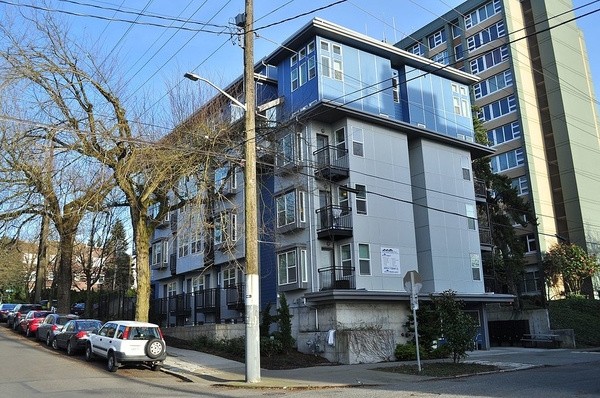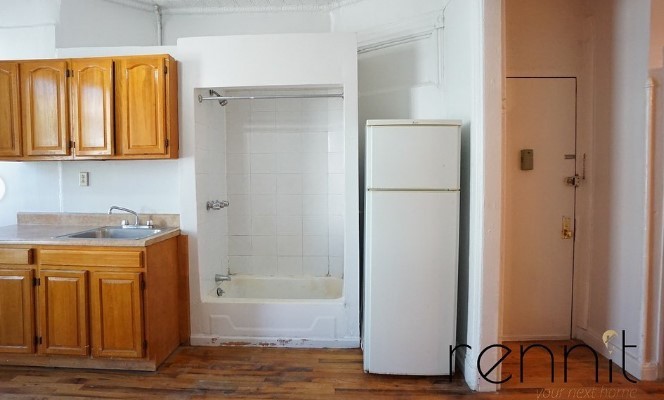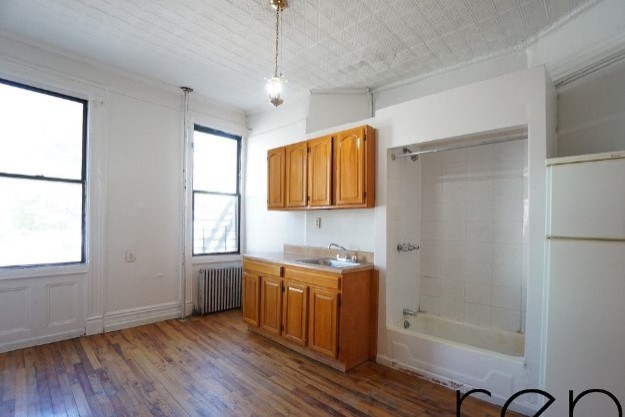
A studio apartment at 114 Walton St. is listed for $1,650. It features a separate bedroom with a toilet, a spacious windowed kitchen with a sink, stove, full-size refrigerator, and spacious countertop. An ideal offer, so it seems, except for the "bathtub situation."
This NYC apartment is not your usual studio apartment in that it comes with a full working shower and tub between the fridge and the sink. It's no surprise that the uncommon listing gained some attention on social media, which garnered different reactions.

The oddness of the unit, located just right off Union Avenue and Broadway, and JMZ at Lorimer Stop, is also acknowledged by the listing agent. But, despite its weirdness, the apartment rented quickly. The listing agent confirmed, according to the New Your Post, that the apartment was snatched up after just 14 days on the market.
This old school loft apartment located in Williamsburg might be weird, but it comes with a reasonable price. It's rare to find an apartment with that amount of space and rent cost in the area, especially that there's plenty of micro-apartments in the city asking for $1,100 to $1,450 a month but is smaller and with a shared communal bathroom.

The Rise of Micro-Apartments
Micro-apartments are studio apartments but are smaller than the average. This type of unit is intended for a single resident. Micro-apartment units usually have 200 to 400 square feet with an ultra-efficient design that packs a bathroom, kitchen, and other necessities. Micro-apartments' key features include multipurpose furniture, small square footage, large windows, high ceiling, community amenities, and balconies.
Most micro-unit buildings have common areas for residents to socialize and relax. Other units are designed for co-living, which means residents have private bedrooms but share all other amenities with other residents. Prime downtown locations, appealing amenities, and thriving communities balance out the small size of micro-apartments.
Usually, people living in micro-units return to their separate bedrooms only when it's time to go to bed. The building serves as their living room while the city is their backyard.
Usually, the target audience or residents of micro-apartments are those living alone and in their twenties with profitable jobs in the city. These residents often value a vibrant and convenient location more than a big and spacious living space. They are those living alone and do not have many possessions yet but can afford the rent costs of micro-apartment units.
The majority of residents living in micro-apartments spend most of their time socializing outside their apartment or at work. Micro-units are not fit and spacious enough for families, and they are way too expensive to be utilized as pied-à-terre units.
Micro-apartments are a relatively new type of rental. Carmel Place is one of the prime examples of micro-apartment. It is in the Kips Bay neighborhood of Manhattan and the first micro-apartment development approved by New York's Department of Housing Preservation and Development.



